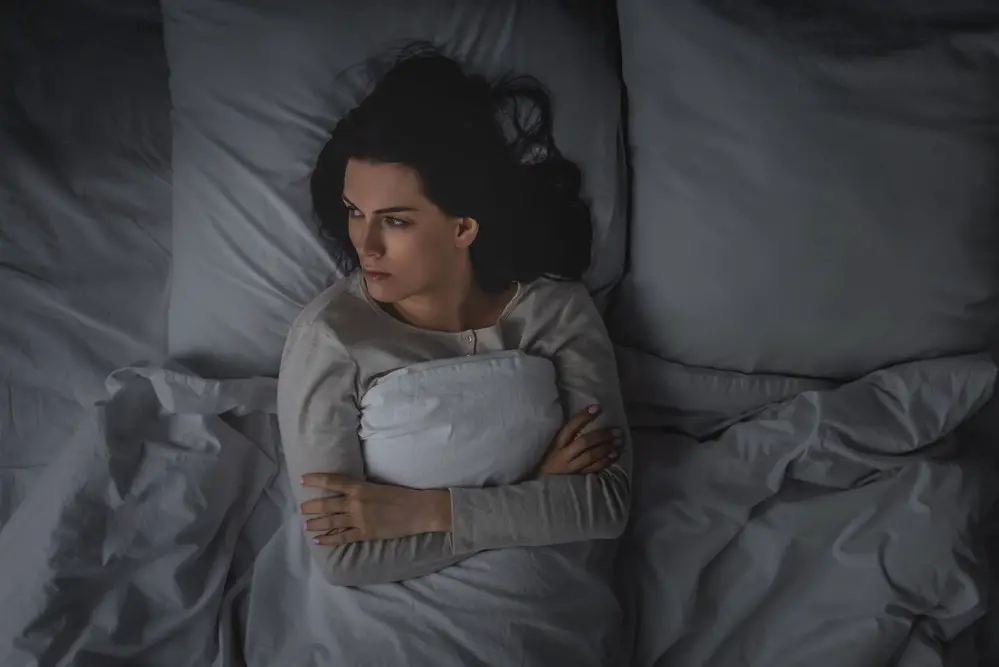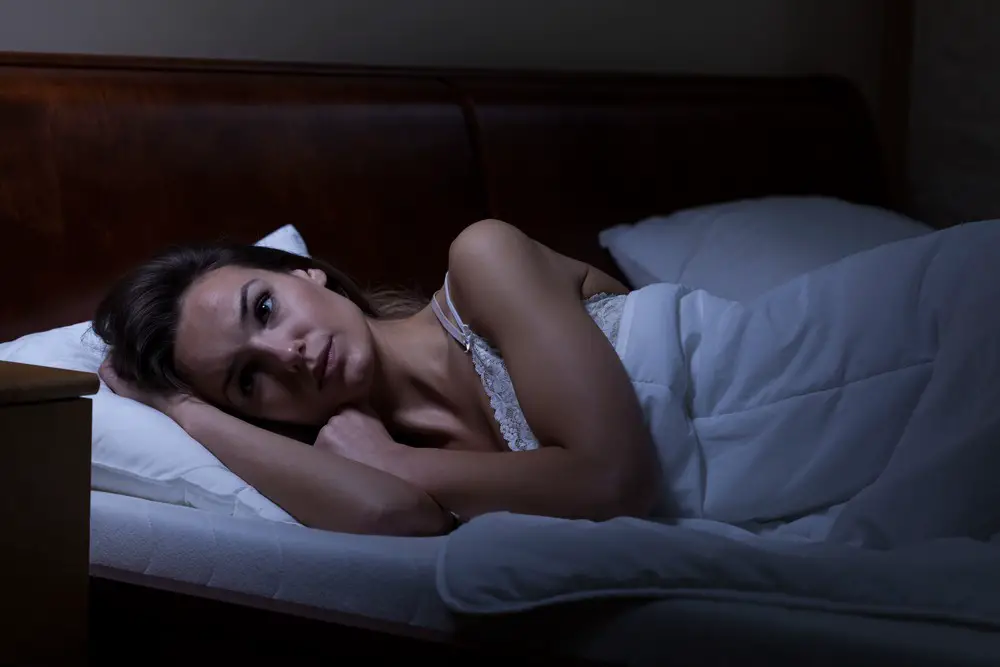As a BetterHelp affiliate, we receive compensation from BetterHelp if you purchase products or services through the links provided
It’s no secret that everybody has nights when they can’t get to sleep, no matter how hard they try. You’ve stuck to your bedtime routine, but you just can’t drift off. Maybe it’s an upcoming work presentation, or you keep thinking about that fight you had earlier in the week. Whatever the reason, we’ve all been there.
Being too tired to sleep can be frustrating, but it’s also pretty standard. In fact, according to a National Sleep Foundation poll, nearly one-quarter of Americans say they experience this problem at least a few nights per week.
If you’re frequently finding yourself in this predicament, there are a few potential reasons why.
What are the symptoms of being too tired?
The most common symptom of being too tired is feeling tired. This might sound obvious, but it’s worth stating because other signs can be more subtle. For example, you might also feel:
- Irritable
- Stressed
- Anxious
- Depressed
- Hopeless
If you’re frequently feeling any of these emotions, it could be a sign that you’re not getting enough rest.

What are some common causes of feeling too tired to sleep?
There are many potential causes of feeling too tired to sleep. Some of the most common include:
Stress: Stress can make it difficult to fall asleep and stay asleep. If you’re constantly worrying about work, finances, or other problems, it’s no wonder you might be feeling exhausted.
Anxiety: Anxiety disorders are one of the most common mental health conditions. Getting a good night’s sleep can be challenging if you’re struggling with anxiety.
Depression: Depression is a common cause of insomnia. If you’re depressed, you may find it difficult to fall asleep or stay asleep. You may also have problems with early morning waking.
Sleep deprivation might seem obvious, but it’s worth mentioning. If you’re not getting enough sleep, it can make you feel tired during the day. This can lead to feeling even more exhausted at night, making it hard to fall asleep.
The importance of your circadian rhythm
You may find sleeping difficult at night if your circadian rhythm is off. This is because your body’s internal clock is out of sync with the 24-hour day. To fall asleep and stay asleep, your circadian rhythm must align with the natural light-dark cycle.
Tell-tale signs you may have a sleeping disorder
There are a number of different sleeping disorders that can make you feel exhausted during the day. If you’re frequently feeling tired, it’s worth talking to your doctor about the possibility that you have a sleep disorder.
Insomnia is the most common sleep disorder. If you have insomnia, you may find it difficult to fall asleep or stay asleep. You may also have problems with early morning waking.
Sleep apnea is when you stop breathing for short periods during sleep. It can make you feel exhausted during the day because you’re not getting enough restful sleep.
Restless legs syndrome is another sleep condition where you have an irresistible urge to move your legs. It can make it difficult to fall asleep and stay asleep.
What are some tips for getting a good night’s sleep
If you’re struggling to get a good night’s sleep, there are a few things you can do to improve your sleep habits.
Creating a bedtime routine can help signal your body that it’s time to wind down for the night. This may include taking a warm bath, reading a book, or stretching.
Make sure that you’re voiding blue light-emitting devices. The blue light from screens can disrupt your circadian rhythm and make it difficult to fall asleep. It’s best to avoid using electronics for at least an hour before bedtime. A dark, quiet, and cool bedroom can help promote better sleep. Make sure your bed is comfortable, and invest in some quality sheets.
Caffeine can stay in your system for up to 8 hours. So if you’re drinking coffee late in the day, it may disrupt your sleep at night. Exercise can help improve your sleep quality. Ensure you don’t exercise too close to bedtime, as it can make it harder to fall asleep.
Most importantly, don’t get stressed about not being able to sleep. The more you worry about it, the harder it will be to fall asleep. If you can’t fall asleep after 20 minutes, get out of bed and do something calming until you feel sleepy again.
When should you see a doctor about your sleeping problems
If you’re struggling with sleep, it’s a good idea to talk to your doctor. They can help rule out any underlying medical conditions and give tips for improving your sleep habits. They may also refer you to a sleep specialist if your sleep problems are severe.
Don’t diagnose yourself with a sleeping disorder. See a doctor for professional help.
Final thoughts: too tired to sleep
It is important not to feel alone if you have problems sleeping. A lot of people have trouble falling asleep or staying asleep.
If you’re frequently feeling exhausted, it’s worth talking to your doctor about the possibility that you have a sleep disorder. There are a number of different sleeping disorders that can make you feel exhausted during the day.
Creating a bedtime routine can help signal to your body that it’s time to wind down for the night. Most importantly, don’t get stressed about not being able to sleep. The more you worry about it, the harder it will be to fall asleep.
FAQs
- Breaking the Silence: Why Men’s Mental Health Matters More Than Ever - April 15, 2025
- How to Transform a Home’s Patio Space into a Relaxing Space - March 23, 2025
- 5 Strategies to Use a Cell Phone to Help Manage Your Stress - March 23, 2025
This site contains affiliate links to products. We will receive a commission for purchases made through these links.



